The thing youre really crafting in Fallout 4 is a legacy
I desperately wanted to love Fallout 3, given that it was cousin to Morrowind and Oblivion, two of my all-time favorite RPGs. It certainly shared many of their best traits, including huge expanses begging to be explored, tons of lore to unearth, and protagonists I could customize to my precise wants and needs. As I played, however, I realized it was missing something that was key to both Elder Scrolls games that I didn’t know was present until it was it was gone. It had no hope. Fallout 4 has just about everything that made Fallout 3 engaging, but pulls in the hope that was so sorely lacking, and it does so with a few walls, some tires, and a baby named Shaun.
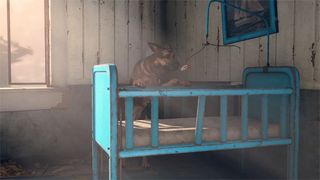
Things are pretty messed up in the Elder Scrolls games, what with gates to hell opening all over the place, civil wars brewing and malicious deities generally mucking things up. But counter to all of that is the hope that you, as the hero, can put the wrongs right and create a future free of chaos. Or at least as free of chaos as a place with whopping great dragons can ever be. In Fallout 3, there’s never any question that you can fix what’s broken; at best, you can make everyone’s shitty life slightly less shitty with some clean water and maybe a few less Raiders running around. Life is still going to be hard and ugly, no matter how much of a hero you are.
The world of Fallout 4 isn’t in much better shape when you emerge from Vault 111. Everything’s soaked in radiation and when you do manage to stumble across another living creature in the emptiness of the what was once Boston, it’s probably going to try and kill you. It’s pretty grim. And yet, you quickly meet a group of people who want to rebuild the town you were living in before the bombs dropped. They ask you to make them houses and beds, plant food for them to nurture, and find clean water. As you scrap the tires and traffic pylons and broken bathtubs and clear away the destroyed houses, you create the hope that someday life might be slightly less awful. A little more comfortable. Just that bit less awful than it is right now.
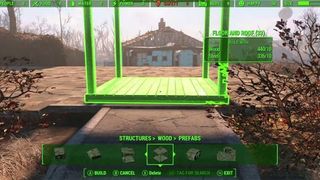
Your trips into the wasteland, then, aren’t just missions to defeat this or that enemy, but rather to gather materials to help humanity thrive. You’re not just putting your life on the line to better yourself, you’re doing it to protect the seed that’s been planted in Sanctuary so that it might grow and thrive. Whereas Fallout 3 was about surviving moment to moment, Fallout 4 is about living for the future - the promise of the life you can have when all the fighting is done.
It’s not just about your future, though, or even the lives of the other settlers you meet along the way. It’s about making a future for your infant son, Shaun. Still in swaddling when you enter the Vault, Shaun is taken by persons unknown for reasons unfathomable. You might be swanning around the wasteland cooking brahmin steaks and scrounging caps, but what you’re really doing is trying to get your son back, and make the world one that he deserves to grow up in. You’ll never quite recreate what he should’ve had, of course, but you can try. And that’s what parents all want to do, isn’t it? Shape the world into something they believe is worthy of their child’s future.
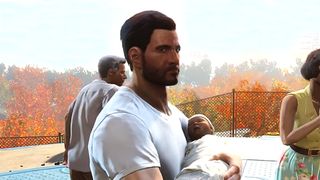
Fallout 3 was all about you in the moment, whatever that moment might’ve been. Do you side with this faction or that, befriend the ghoul or kill him, whatever. Fallout 4 is about your legacy, how the world will carry on without you when you’re gone. By sheer force of will (and with a surprisingly robust workbench) you’re recharting the path life has been on since the mushroom clouds went up. You’re trying to move a mountain by pushing on it really hard, and you may fail, but there is at least the hope that you will succeed and that things will be different someday. Planting vegetables and purifying water will help you make glue in the short term, yeah, but may also help sustain a community long enough for it to be there in a year, or ten, or a hundred. Your son may come of age feeling safe instead of scared. He may live long enough to have children of his own because you took the time to scrap some cars and put up walls or string the wires to keep a beacon running.
And that’s what a lot of RPGs are missing: a sense of personal legacy. Admittedly, saving the world from a tear in the fabric of reality is kind of a big deal, but it’s so huge that it’s hard to really wrap your head around. You may save your companion’s lives, or strike up a romance or two, but your role is to fix the problem at hand and then….well, do whatever it is heroes do when there’s not a crisis. Read, maybe? I dunno. The thing about being A Hero is that you’re not really much of anything else, but in Fallout 4, your heroism takes on many forms. Wiping out Raider strongholds is heroic, absolutely, but so is planting corn.
Sign up to the 12DOVE Newsletter
Weekly digests, tales from the communities you love, and more
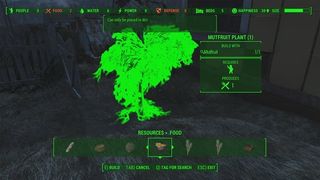
Most of us don’t really have enormous impacts on the world at large, just on our own small corner of it. We leave our legacy in myriad tiny ways. We give during the office blood drive. We foster dogs until they can be placed in forever homes. We do our best to give our kids all the tools they need to live the best life they can before we release them out into the world, and if we’re really smart, we’ve done our best to make sure that world is what they need it to be.
For many players, Fallout 4 will still be about the Bloody Mess perk and seeing heads explode in slo-mo, and that’s perfectly valid. There’s nothing wrong with just having fun running around Boston, exploring the copious nooks and crannies and only bothering with a crafting table when you want to upgrade your gun or paint your power armor. For me, though, those aspects will be secondary to working out the blueprints that might lead to a better tomorrow.
Susan was once Managing Editor US at GamesRadar, but has since gone on to become a skilled freelance journalist, editor, producer, and content manager. She is now 1/3 of @Continuepod, 1/2 of @BeastiesLl, co-founder of @TakeThisOrg, and Apex Editor, Fluid Group.
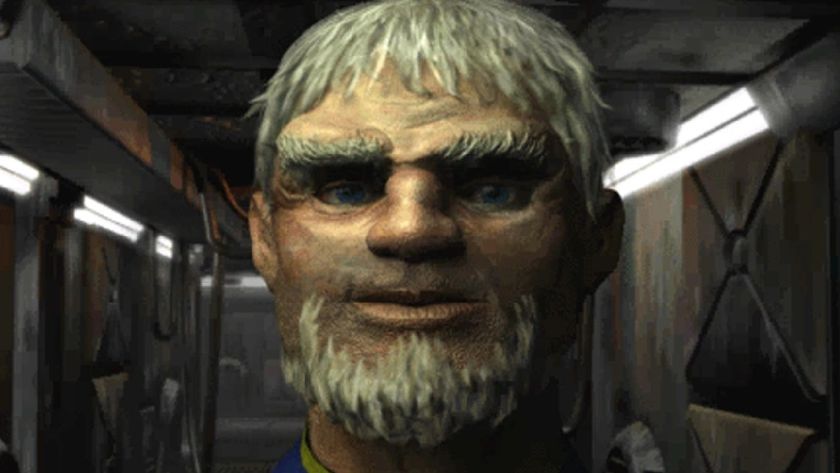
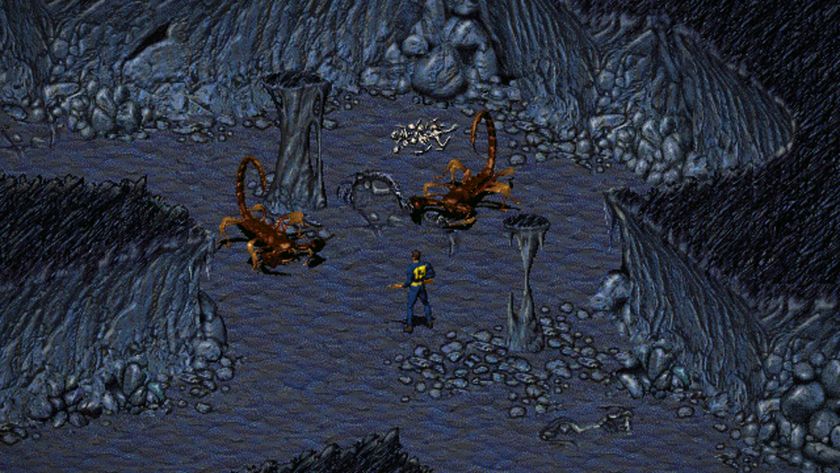
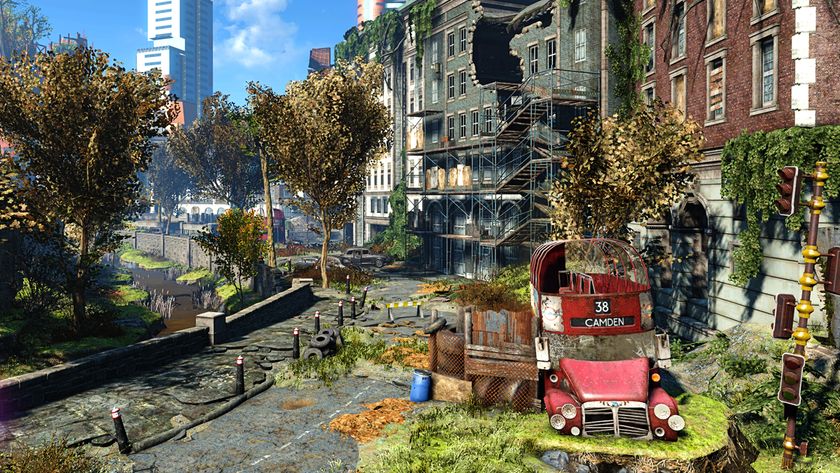
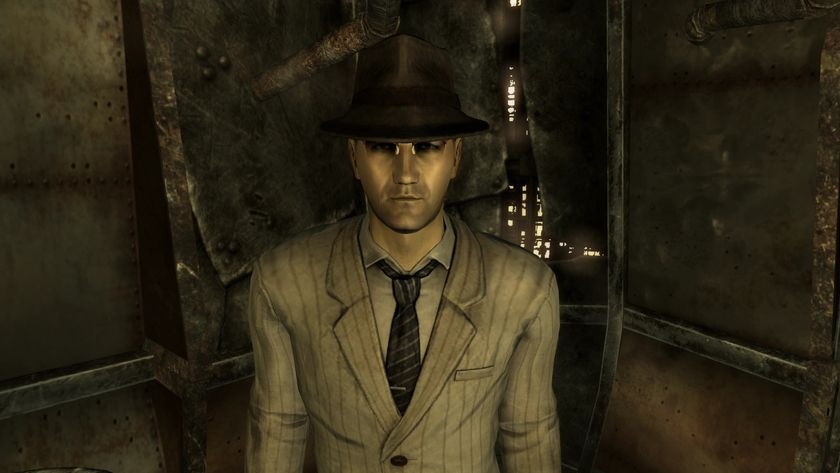
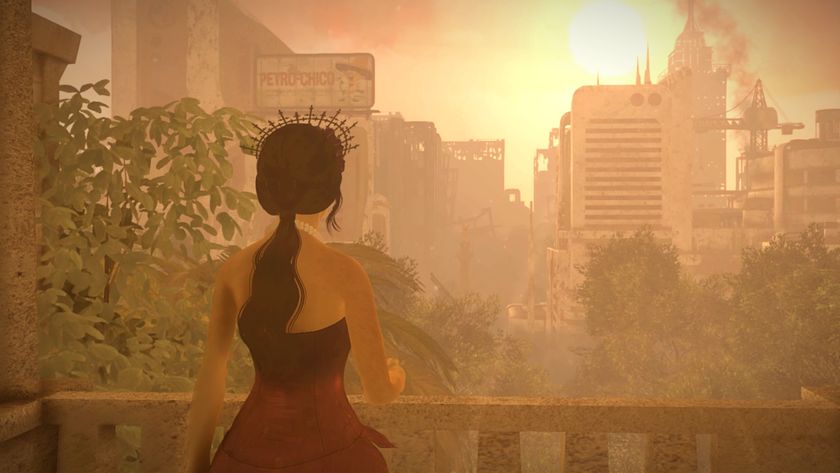
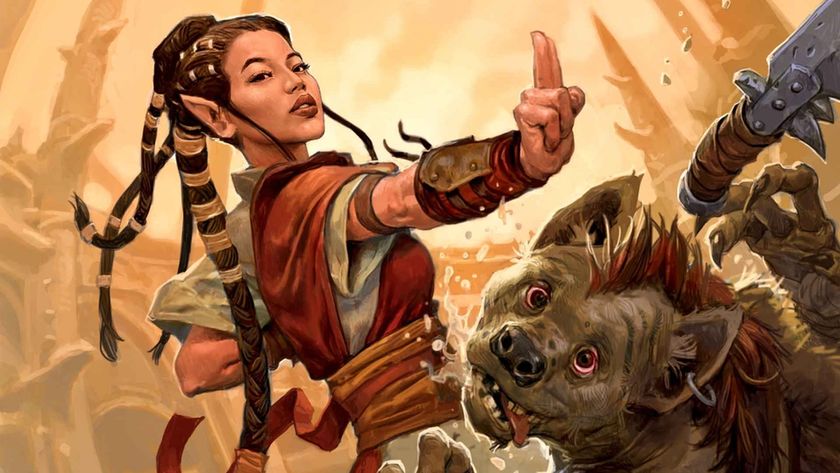







Original Fallout creator says he "pushed" for a happy ending with "cake and balloons" instead of the RPG's downbeat finale

Disco Elysium lead says original Fallout is an RPG "that's almost Biblical in its annihilation," making "other post-apocalyptic worldbuilding seem like an amusement park"




